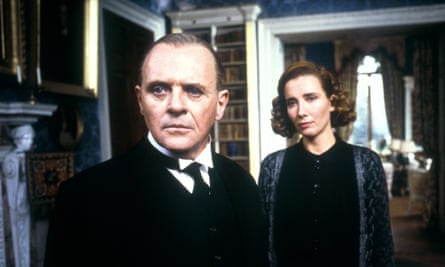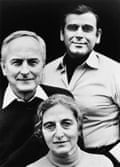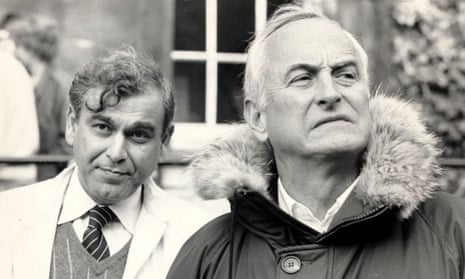When James Ivory recently bagged an Oscar for the gay coming-of-age hit Call Me By Your Name, the victory made him, at 89, the oldest Academy winner ever. Although the win, for best adapted screenplay, is still fresh, the film has been seducing audiences ever since its rapturous premiere at the Sundance film festival more than a year ago.
Ivory’s script has scooped most of the big prizes, including a Bafta and a Writers Guild of America award, but he sounds dazed when asked to reflect on its success. “Its wide appeal is still something of a mystery to me. And it really is adored, especially by young women and older people. Married couples come up to me on the street in New York – often in their 70s or 80s – and they rave about the movie. I guess it’s an unabashed first-love idea everyone can identify with. The sexual orientation of the characters doesn’t mean as much as the emotion of the story.”
The carefree mood of the picture, directed by Luca Guadagnino, also plays a part. The lovers encounter no external obstacles to their romance: all traces of tension or conflict come entirely from within, the words “gay” and “homosexual” are nowhere to be heard, and, though the spectre of Aids hovers over the characters from our historical vantage point, that, too, goes unmentioned. “I did write a scene where Elio’s parents talked about it,” Ivory says. “There was some timidity on the part of the mother regarding this new and terrible disease everyone was hearing about. I wrote two scenes where the parents discuss that. It didn’t matter to me that they were dropped. They didn’t do anything terribly important.”

One aspect that does still rankle with him is the absence of full-frontal male nudity. Ivory’s screenplay specified that Elio and Oliver would be shown naked, a detail overruled by clauses in the actors’ contracts. “When Luca says he never thought of putting nudity in, that is totally untrue,” says Ivory. “He sat in this very room where I am sitting now, talking about how he would do it, so when he says that it was a conscious aesthetic decision not to – well, that’s just bullshit.
“When people are wandering around before or after making love, and they’re decorously covered with sheets, it’s always seemed phoney to me. I never liked doing that. And I don’t do it, as you know.” In Maurice, his 1987 film of EM Forster’s posthumously published gay love story, “the two guys have had sex and they get up and you certainly see everything there is to be seen. To me, that’s a more natural way of doing things than to hide them, or to do what Luca did, which is to pan the camera out of the window toward some trees. Well …” He gives a derisive snort.
Ivory himself is gay. His relationship with his producing partner Ismail Merchant, which began when they met in the early 60s, lasted until Merchant died during surgery in 2005 at the age of 68. Though the pair had been making films for more than four decades – often with their friend and favourite screenwriter, Ruth Prawer Jhabvala, who died in 2013 – any references to their personal life together were only ever made discreetly and euphemistically by the press, if at all.

Even with the release in 1987 of Maurice, they batted away any prying questions about their private lives. When I ask Ivory why this was, he comes as close to calling me a blasted fool as someone so urbane can. “Well, you just wouldn’t,” he splutters. “That is not something that an Indian Muslim would ever say publicly or in print. Ever! You have to remember that Ismail was an Indian citizen living in Bombay, with a deeply conservative Muslim family there. It’s not the sort of thing he was going to broadcast. Since we were so close and lived most of our lives together, I wasn’t about to undermine him.”

The Merchant/Ivory brand fell from commercial and critical favour about 10 years before Merchant’s death, and Ivory has struggled to get new projects under way. His Oscar could change that. A film of Richard II, which he has hoped to make since the early 90s, may now reach the screen: “People are reading the script with, let’s say, renewed interest.”
He also has a nice little part in mind, in another project, for his old mucker Daniel Day-Lewis: “He’d be playing a detective, which I don’t think he’s done.” Ivory seems unperturbed when I mention that the actor retired recently. “He retired once before to become a shoemaker in Italy and luckily he didn’t persist at that, so hopefully this is short-term, too.” What’s certain is that Ivory is adapting Prawer Jhabvala’s short story The Judge’s Will for Alexander Payne, who made Sideways and the recent Downsizing. “He’s a good, sane director,” he says, “with a special way of looking at things.”
As for the Oscar, that’s currently in Ivory’s New York apartment. “It’s sitting at a window where all kinds of people could see it if they bothered to look across. Do you know the funny thing about an Oscar? It’s exactly the right weight for a dumbbell. So if you had two of them, you could do a pretty good work-out.” So he’ll just have to hurry up and win another. “I guess so,” he sighs. Don’t bet against it happening.
- Call Me By Your Name is out now on Blu-ray, DVD and digital download.
